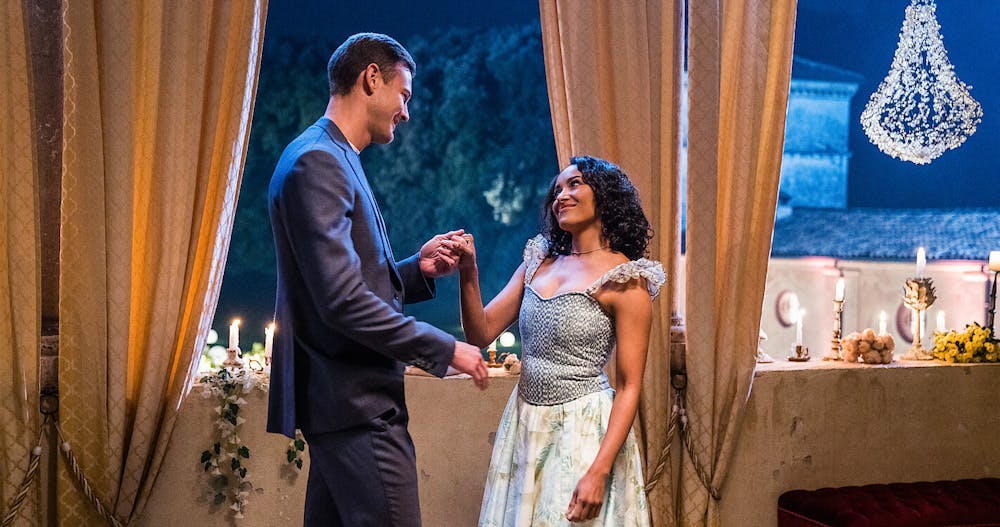Netflix is known for producing a slew of romantic comedies of questionable quality — think “The Kissing Booth” — which become fun, bad binge watches. Unfortunately, “Love in the Villa,” released on Netflix Sept. 1, falls short of even that category, delivering a bad and boring viewing experience.
The movie follows Julie Hutton (Kat Graham), a third-grade English teacher obsessed with “Romeo and Juliet.” Her obsession includes a desire to travel to Verona, Italy, where the play is set, with her boyfriend Brandon (Raymond Ablack). But the two break up shortly before their planned trip to the Italian city. She decides to go on her own, but soon finds that her romantic villa is double-booked with stuck-up wine importer Charlie Fletcher (Tom Hopper). Their initially adversarial relationship then follows the typical “enemies to lovers” trope.
The big problem with this movie is that there is no reason for Julie and Charlie to be enemies, or even to dislike each other. For some reason, as soon as Julie walks into the villa, Charlie is mean to her. Sure, you can try to attribute his attitude to annoyance about the double booking, but the sheer amount of gratuitous pettiness from Charlie is hard to understand. Effective examples of an “enemies to lovers” storyline begin with an established reason for the main characters to dislike each other, such as in “Purple Hearts,” where the two eventual lovers have different political views, or in “The Hating Game” where they’re going for the same promotion at work. But “Love in the Villa” fails to create a believable point of conflict between the two main characters, instead attempting to use pranks and hate to create the same effect.
Charlie and Julie’s characters, as well as their chemistry, don’t do much to save the film.
Charlie is bland and generic. It feels like the writers used artificial intelligence to produce a hot, British male lead. While the writers try to give him a sad backstory, it does not do much to make Charlie interesting. Meanwhile, Kat Graham delivers a charismatic performance that makes Julie a likable character. Still, it does not hide the fact that she and Tom Hopper have no chemistry.
Just like it’s not explained why they hate each other, it’s also not explained why they start liking each other. Quite literally, one day they are throwing pasta dishes at each other and constantly bickering, and the next they are confessing their love to each other.
While some lighthearted rom-coms can get away with these plot holes, “Love in the Villa” can’t because it just doesn’t have much else to offer. The attempt to create a romantic backdrop in Verona and the film’s constant references to “Romeo and Juliet” don't help. The aura of the famous play isn’t strong enough to set a romantic mood, even if Charlie and Julie’s villa is right across the street from Casa Di Giulietta — the house with the balcony that inspired the famous Shakespearean scene. The movie tries desperately to relate “Romeo and Juliet” to Charlie and Julie’s story. But unsurprisingly, it barely works — it ultimately feels a bit pitiful to put one of the world's most passionate love stories next to this generic attempt at romance.
Furthermore, the only thing the Italian setting does is offer some pretty shots. All of the Italian characters are exaggerated and cartoonish, exemplified by mediocre puns like a taxi driver named Uber-to. It’s supposed to be lighthearted, but it comes off as uninteresting. There are far better romantic comedies, like “Eat, Pray, Love” and even one of Netflix’s latest, “Love & Gelato,” that are set in Italy and use the Italian setting as more than just a gimmick.
Netflix has not confirmed a sequel. Considering the minimal press and lukewarm reviews the movie is getting, it’s hard to believe that this love story will get a second shot. It’s probably for the best to stick with some of Netflix’s more established rom-coms for your binge watches and let “Love in the Villa” fall into the depths of Netflix’s catalog.





